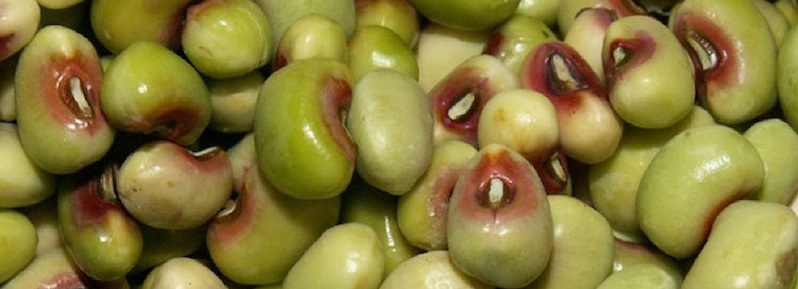Trail of Tears Squash and Cherokee Bean Bread
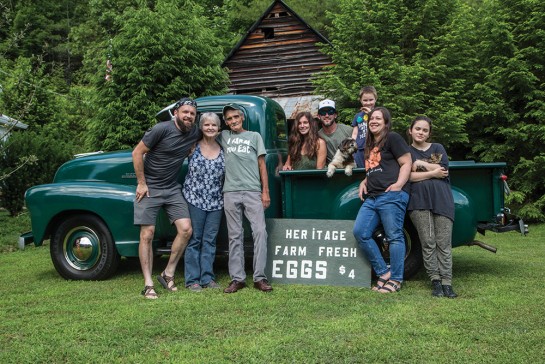 Farming is not new to the Long family. Harold Long’s Cherokee ancestors have been cultivating the western North Carolina landscape for thousands of years. At their mountain farm of today, the Longs grow out native heirloom varieties, then save the seeds, and assemble garden kits for the Eastern Band of Cherokee Indians to distribute to tribal members. Harold and Nancy Long’s lifelong commitment to caring for the land and for their community recently led the North Carolina Extension Service to name them North Carolina Small Farmers of the Year.
Farming is not new to the Long family. Harold Long’s Cherokee ancestors have been cultivating the western North Carolina landscape for thousands of years. At their mountain farm of today, the Longs grow out native heirloom varieties, then save the seeds, and assemble garden kits for the Eastern Band of Cherokee Indians to distribute to tribal members. Harold and Nancy Long’s lifelong commitment to caring for the land and for their community recently led the North Carolina Extension Service to name them North Carolina Small Farmers of the Year.
When we met Harold and Nancy Long, we recognized a family living out the deep story of native agriculture and the story of tribal determination to honor the past while preparing for the future. These are all themes explored in At the Common Table, our documentary on Southern food and people.
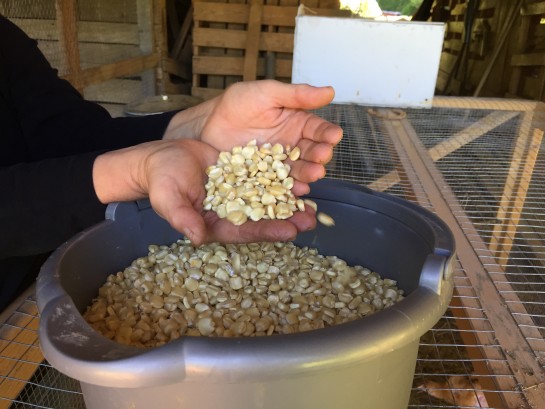
The Longs see their work in promoting traditional Cherokee seed varieties as both preserving tradition and providing a healthy future. Native heirlooms often grow with an awe inspiring vigor, covering fields and clambering up nearby trees as you can see in the image below of Harold in the field of squash vines. This Trail of Tears Squash was carried by tribal members out to Oklahoma during the Removal and has recently been reintroduced to its native habitat in western North Carolina.
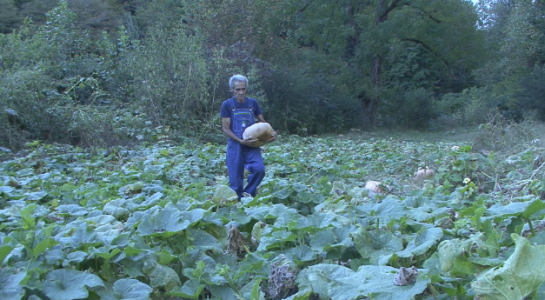
Over the course of a recent summer, we filmed Harold sowing heirloom corn, harvesting ears from the giant stalks, and grinding the kernels into meal. We capped off our corn visits with Harold mixing the fresh ground cornmeal into Cherokee bean bread, a dish eaten by the Cherokee for hundreds of years and still enjoyed today.
Recipes for bean bread abound on the internet. Some include modern additions such as flour and baking powder. Many use corn husks to wrap the dough, much like tamales. Harold Long drops his straight into the boiling water. The bean bread on this site, Traditional Cherokee Recipes, comes closest to what Harold made for us. It was delicious—especially with bacon.
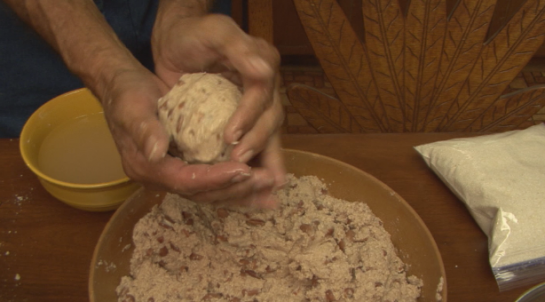
The Long Family farm continues to be a living link to the deep history of people and place in the American South, and as Chumper Walker, director of the N.C. Cooperative Extension Center for the Eastern Band of Cherokee Indians says, “The Longs set an inspiring example for other farmers and for young people.”




